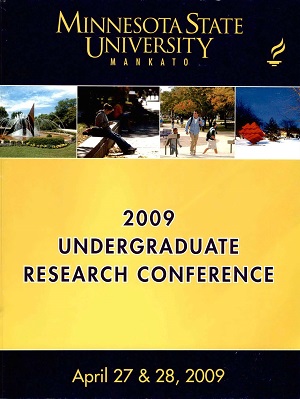Elderly Attitudes Toward Exercise
Location
CSU 255
Start Date
27-4-2009 8:00 AM
End Date
27-4-2009 10:00 AM
Student's Major
Psychology
Student's College
Social and Behavioral Sciences
Mentor's Name
Daniel Houlihan
Mentor's Department
Psychology
Mentor's College
Social and Behavioral Sciences
Description
This project's purpose was to gain more knowledge and understanding of why elderly people, as a whole, do not tend to exercise regularly, whereas the benefits for them to do so are significant. Researchers distributed a survey to elderly people in assisted living facilities that measured the attitudes of elderly people toward exercise. Participants were asked to fill out the survey, which took no longer than 30 minutes to complete while the researcher was present to assist. Individuals with severe cognitive deficits or individuals who are incapable of giving informed consent were excluded. The survey consisted of questions pertaining to actual involvement in exercise, for example how many times a week they exercise. Some questions pertained to preferences for time of day they exercise and what types of exercise they prefer. Other questions included about barriers to exercising, such as a lack of energy or inadequate space in order to exercise.
Elderly Attitudes Toward Exercise
CSU 255
This project's purpose was to gain more knowledge and understanding of why elderly people, as a whole, do not tend to exercise regularly, whereas the benefits for them to do so are significant. Researchers distributed a survey to elderly people in assisted living facilities that measured the attitudes of elderly people toward exercise. Participants were asked to fill out the survey, which took no longer than 30 minutes to complete while the researcher was present to assist. Individuals with severe cognitive deficits or individuals who are incapable of giving informed consent were excluded. The survey consisted of questions pertaining to actual involvement in exercise, for example how many times a week they exercise. Some questions pertained to preferences for time of day they exercise and what types of exercise they prefer. Other questions included about barriers to exercising, such as a lack of energy or inadequate space in order to exercise.
Recommended Citation
Ek, Kari. "Elderly Attitudes Toward Exercise." Undergraduate Research Symposium, Mankato, MN, April 27, 2009.
https://cornerstone.lib.mnsu.edu/urs/2009/oral-session-03/2




